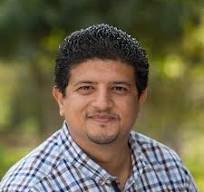Organic chemistry is the chemistry of life. Some people like studying organic chemistry and most people don’t. Being related to different molecular structures and reaction mechanisms, organic chemistry is usually perceived as a lot of memorizing and quite difficult to understand.
Believe it or not, understanding organic chemistry is understanding our life. The indulgence you feel after tasting a nice piece of chocolate, the morning coffee that restores our balance in the beginning of each day, even a simple movement of your hand, or how you read and enjoy this article; all these are simply organic reactions that happen within our body. Burning fossil fuels that affect climate change, mitigating environmental problems, understanding diseases and how to treat them using pharmaceutical products are other fields that rely on organic chemistry.
We had the pleasure to co-teach the Organic Chemistry I course (CHEM 2003) in Fall 2022 and agreed on redesigning the course syllabus and materials to more interactive and student-based class activities to enhance the students’ learning experience. During the semester, we received a generous invitation from the CLT team to introduce the fascinating potential of using Active Learning Classrooms (ALCs) in creating new learning strategies that are more student-centered. ALCs provide a lot of opportunities to shift between teaching strategies during the semester. Movable furniture, good lighting, and multiple screens give endless possibilities of activities that can enhance students’ learning experience.
The Organic Chemistry I course, in particular, is full of structures and reaction mechanisms that require a deep understanding of the concepts and require the use of many visuals such as lecture slides, problem-solving strategies, group work, in-class activities, etc. Explaining multi-step reaction mechanisms, relationships between different types of close organic chemical reactions, problem-solving, and group work review sessions are among the activities that can be enhanced using the ALC.


In Fall 2022, we had the chance to use one of the ALCs (CP18) for a review session on stereochemistry for the course. With the continuous help and support of Maha Bali and the CLT team, we designed a very nice activity that included a game between five different teams. The screens were color-coded for each team and each screen had the questions preset before class time. The main screen was reserved for a bonus question. Toward the end, each group explained the answer to one question to the rest of the class to assess their understanding (another valuable tip from Maha Bali).



The activity was fun for the students and us, they learned a lot from working together and from the other groups and showed a level of cooperation and engagement that was amazing. One of the students commented “If all my classes were like this, I would never skip a class!”. In the usual classroom, each class time was divided into sections with some activities and problem-solving in between. However, the setup of the usual classroom makes it more difficult for group work and parallel activities inside the classroom compared to what the ALC provides.
You feel the different vibes once you step in an ALC, the perfect lighting, the smooth flooring, those amazing movable seats, the colors of the walls hugging the different screens masterfully positioned, and the warmth engaged with modernity that these classrooms provide. Those factors that combine comfort with efficiency offer a radically different energy than that felt in a conventional classroom by the students and by us as instructors as well. We felt it from those shining eyes once the students got into CP 18 even before starting the activities. They kept wandering around the room, checking the screens, touching them, sitting on the chairs and happily rotating while smiling at each other with excitement. Once the teams were assigned and each team went to its screen and the Organic Chemistry problems started pumping before them, the members of each team went together into a state of rare engagement where they showed a unique sense of focus, cooperation, and creativity. As instructors, we always dream that our students get to that state, and when this state was achieved by each and every student, combined with joyfulness, it rendered us in an ecstatic state ourselves. What an ALC can provide consistently with ease in the aim of academic delivery and progress, a conventional classroom can achieve on rare occasions with extreme effort and under unique conditions.
Moving forward, with the support of Tamer Shoeib, Chair of the Department of Chemistry, and the CLT Team, we are planning to use one of the ALC for future chemistry courses to allow for more interactive activities like this throughout the semester. Learning organic chemistry is FUN and at AUC, the ALCs are the key.
Finally, we would like to thank the CLT team for allowing us to dream, think and apply how to improve the students’ learning experience in the organic chemistry courses.
This project is made possible by the generous support of the American people through the United States Agency for International Development (USAID) under the terms of awards Educational Transformation – A Hub for Next Generation Digital Learning Environments at AUC (2020)
& Next Normal Digital Learning Spaces for Educational Transformation (2021). The contents are the responsibility of the Center for Learning and Teaching, American University in Cairo.



